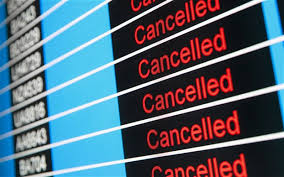Disasters strike, occasionally. They just do. And personal experience here says lightning can strike more than once.
I’m, um, let’s say, 40-something. And in those years, I’ve had cause to make a few insurance claims. The odd car accident, a burglary, storm damage and a few holidays interrupted by brazen pickpockets, flight cancellations or natural disasters.
Most recently, this included our family holiday to Bali, impacted by the Mt Raung volcano eruption. See my recent blog on the UI site.
Within hours of landing back in Brisbane – and after we’d booked ourselves on the next available flight to Bali – we informed the insurance company. They gave us guidance on what would and wouldn’t be covered under the policy.
When we returned home two weeks later, we filled out the claims form, complete with detailed receipts and credit card statements.
The claim was paid out within two weeks.
The only hiccup? Our claims assessor wasn’t sure about cover for one night’s accommodation in Bali, as we’d arrived about 11.30pm and slept there, even though we hadn’t arrived to enjoy the day. But she said she’d argue our case with her superiors. She won!
You think insurance can be expensive? Try a disaster event when you don’t have it.
Claiming on insurance isn’t something anyone plans on. But when your event comes with a financial toll that starts to click over like a broken water meter, keep your wits about you.
No matter what the disaster – car bingle, holiday from hell, your castle attacked by tree, fire or burglar – all claims, from your perspective, have a pretty similar rule.
Stay calm and don’t shoot yourself in the foot.
First, do whatever you can to stop the damage getting worse. If your house is being flooded by a burst pipe, consider turning off water at the mains. A car accident? Pull over somewhere safe and swap details with the other driver. A travel claim? Check with your insurer before you incur any large expenses, especially rebooking flights and accommodation.
Don’t put yourself or anyone else in further danger. If your home is unsafe, stay out of it. Call the police if you need to.
Insurance claims are handled by “claims assessors”. Assessors want a couple of things. Firstly, an explanation of what the heck happened. Secondly, the financial-damage evidence, usually involving receipts.
As soon as you become aware that you might have a claim, start making notes about what happened and when. (Even send yourself emails, with photos/video, via your phone.)
Contact your insurance company or broker. Download the product disclosure statement (PDS) of the policy itself and look for the section on what will and won’t be covered.
Collect every receipt you can. It’s unlikely that absolutely everything will be covered by your policy. But you’re not the expert here, so grab them all and ask questions later.
Insurance companies, despite the occasional bad rap, are there to pay claims. General insurers pay out about $28 billion in claims each year, which involves payment on around 97% of claims lodged.If you make a claim, get knocked back, but believe that you’ve got a real case – on the whole claim, or individual items – insurers have an internal dispute resolution system. If you’re not happy with that result, you can escalate your claim to the independent Financial Ombudsman Service.

